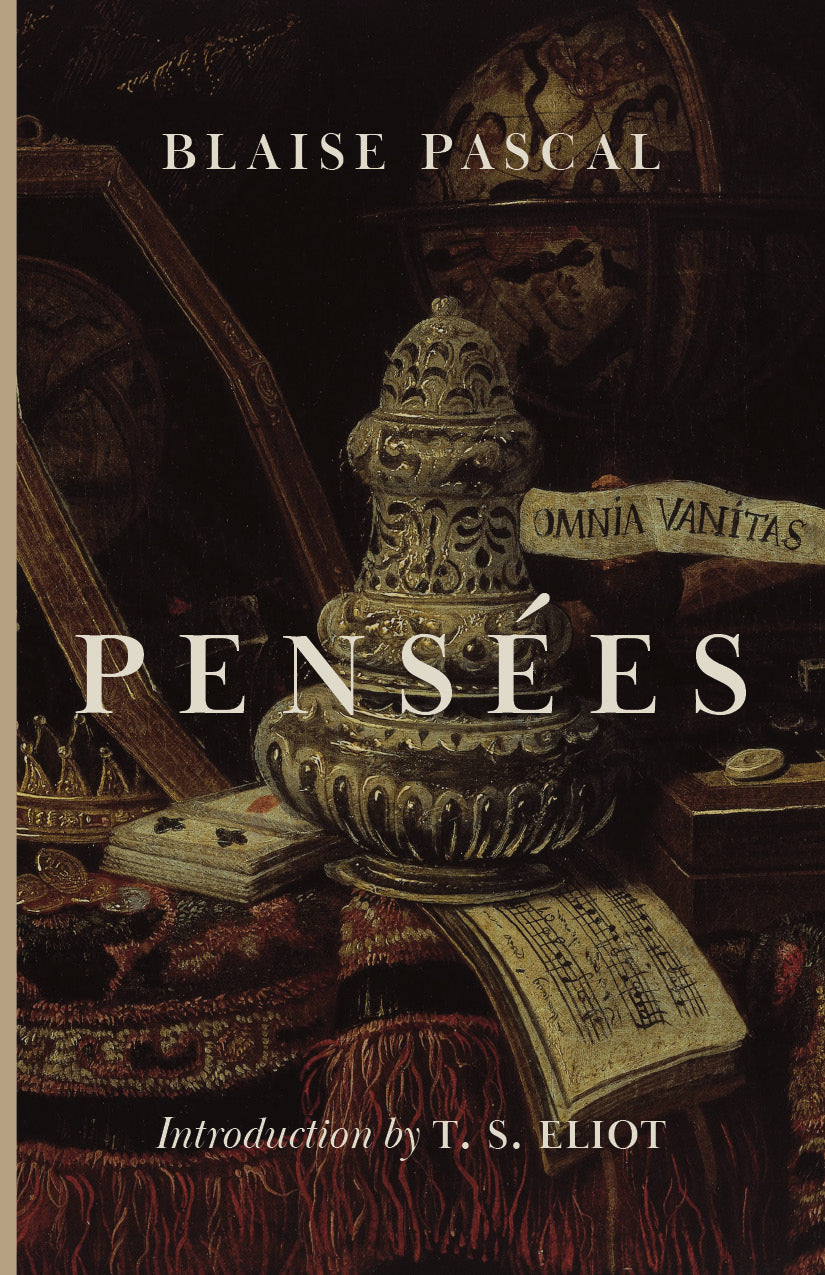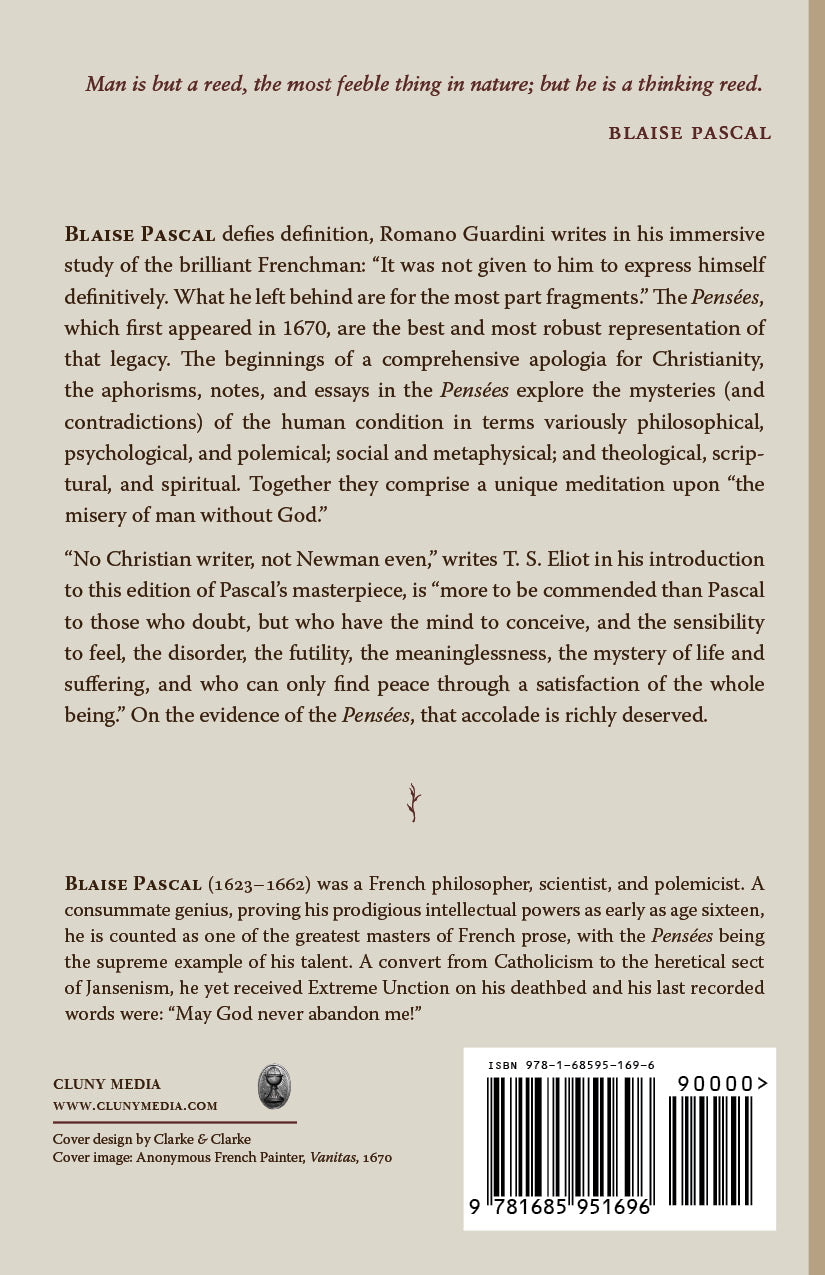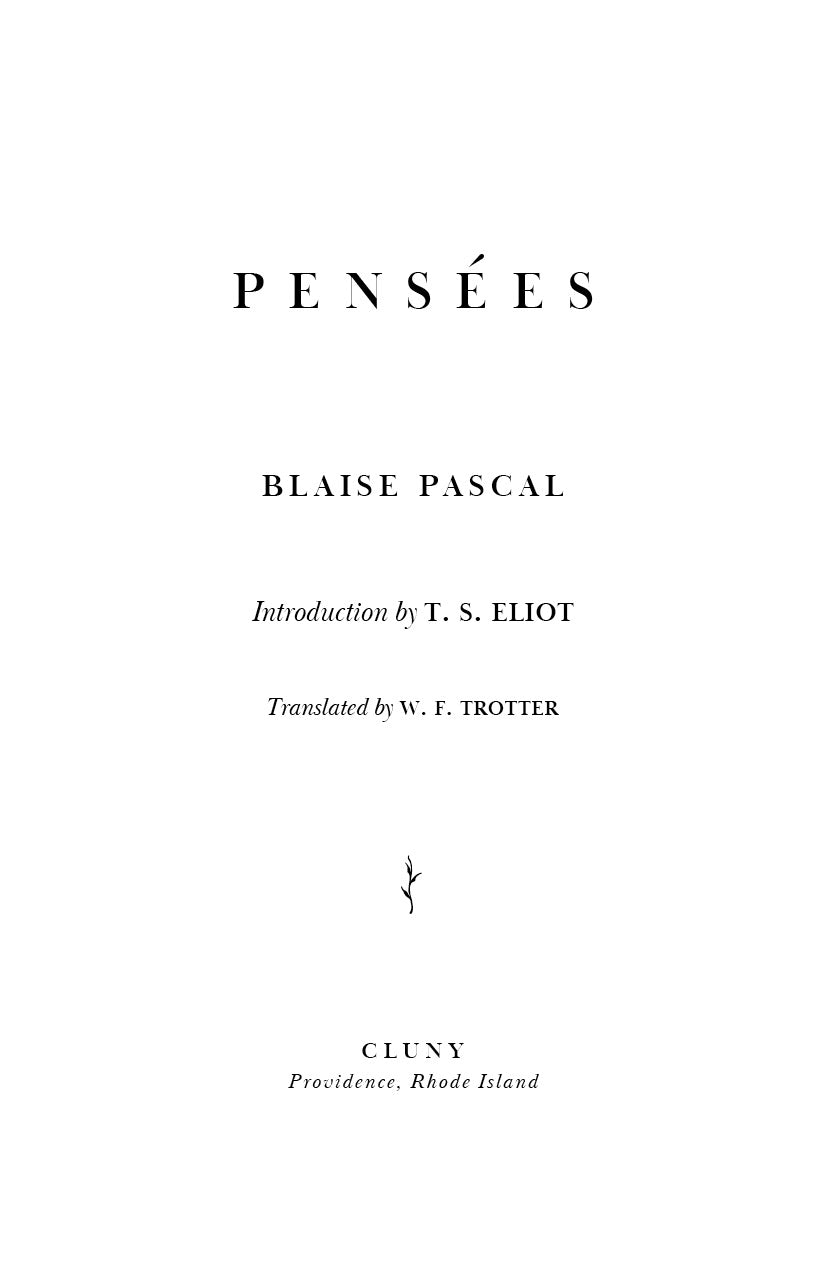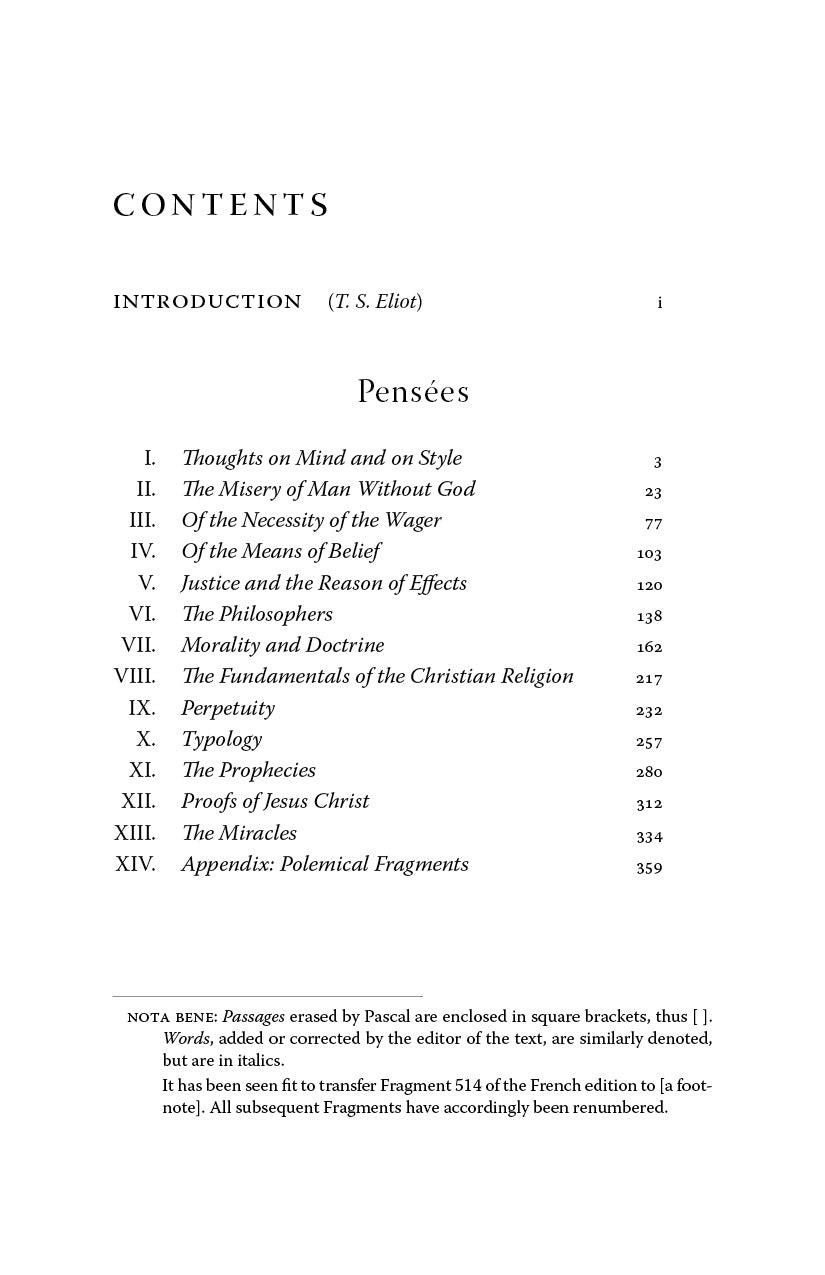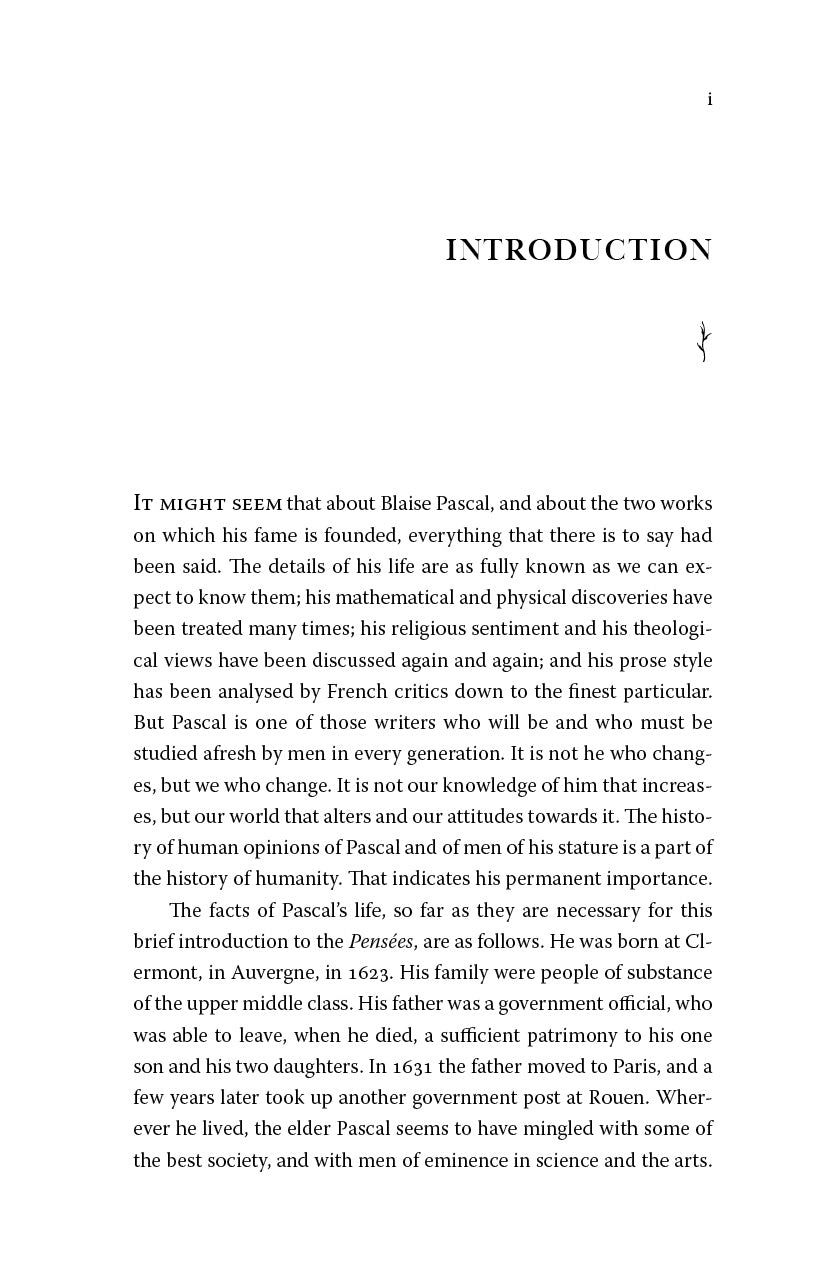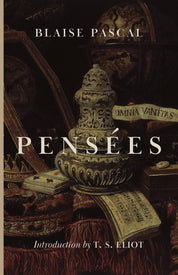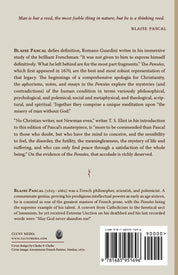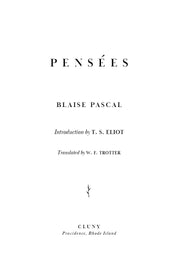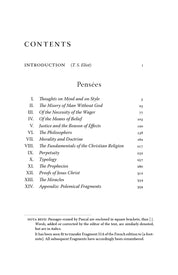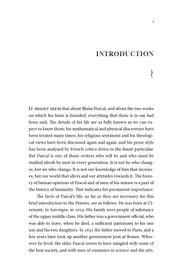Pensees
By Blaise Pascal | Introduction by T. S. Eliot
Blaise Pascal defies definition, Romano Guardini writes in his immersive study of the brilliant Frenchman: “It was not given to him to express himself definitively. What he left behind are for the most part fragments.” The Pensées, which first appeared in 1670, are the best and most robust representation of that legacy. The beginnings of a comprehensive apologia for Christianity, the aphorisms, notes, and essays in the Pensées explore the mysteries (and contradictions) of the human condition in terms variously philosophical, psychological, and polemical; social and metaphysical; and theological, scriptural, and spiritual. Together they comprise a unique meditation upon “the misery of man without God.”
“No Christian writer, not Newman even,” writes T. S. Eliot in his introduction to this edition of Pascal’s masterpiece, is “more to be commended than Pascal to those who doubt, but who have the mind to conceive, and the sensibility to feel, the disorder, the futility, the meaninglessness, the mystery of life and suffering, and who can only find peace through a satisfaction of the whole being.” On the evidence of the Pensées, that accolade is richly deserved.
* * *
Blaise Pascal (1623–1662) was a French philosopher, scientist, and polemicist. A consummate genius, proving his prodigious intellectual powers as early as age sixteen, he is counted as one of the greatest masters of French prose, with the Pensées being the supreme example of his talent. A convert from Catholicism to the heretical sect of Jansenism, he yet received Extreme Unction on his deathbed and his last recorded words were: “May God never abandon me!”
Paperback: 408pp.
ISBN: 978-1685951696

